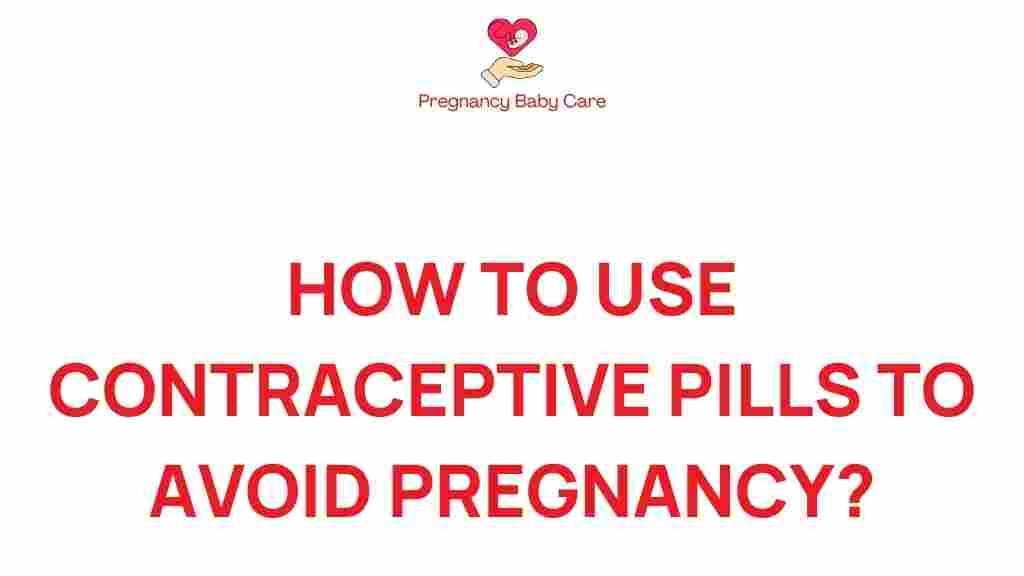Mastering Contraceptive Pills: Your Guide to Preventing Pregnancy
When it comes to family planning, understanding contraceptive pills is essential for effective pregnancy prevention. These hormonal contraceptives have been a reliable method for countless individuals seeking to manage their reproductive health. In this guide, we will explore everything you need to know about contraceptive pills, including how they work, types available, potential side effects, and tips for successful usage.
What Are Contraceptive Pills?
Contraceptive pills, often referred to as birth control pills, are medications taken orally to prevent pregnancy. They primarily work by altering the hormonal balance in the body, which helps to inhibit ovulation, disrupt the menstrual cycle, and thicken cervical mucus to block sperm from reaching an egg.
Types of Contraceptive Pills
There are two main types of contraceptive pills:
- Combination Pills: These contain both estrogen and progestin. They are the most commonly prescribed type of contraceptive pills.
- Progestin-Only Pills: Also known as the mini-pill, these contain only progestin and are suitable for individuals who cannot take estrogen.
How to Use Contraceptive Pills for Effective Pregnancy Prevention
To maximize the effectiveness of contraceptive pills, it’s important to follow a consistent routine. Here’s a step-by-step process to ensure you are using them correctly:
Step 1: Consult Your Healthcare Provider
Before starting any contraceptive method, it is crucial to consult with a healthcare provider. They can help you understand:
- Your medical history and any contraindications.
- The type of contraceptive pill that would be most effective for you.
- How to manage potential side effects.
Step 2: Understand Your Menstrual Cycle
Knowing your menstrual cycle can help you understand when to start taking your contraceptive pills. Most pills are designed to be taken in a 28-day cycle, with 21 active pills and 7 placebo pills.
Step 3: Create a Routine
Take your pill at the same time every day to maintain consistent hormone levels in your body. Setting an alarm or using a pill organizer can help you remember.
Step 4: Monitor for Side Effects
While many individuals experience few to no side effects, some may encounter issues such as:
- Nausea
- Headaches
- Breast tenderness
- Weight gain
If side effects persist or worsen, contact your healthcare provider for guidance.
Troubleshooting Common Issues with Contraceptive Pills
Even with proper use, issues may arise. Here are some common problems and how to address them:
Missed Pills
If you miss a pill, follow these general guidelines:
- If you miss one pill, take it as soon as you remember. Continue taking the remaining pills on schedule.
- If you miss two or more pills, consult the instructions provided with your medication, as the steps may vary depending on the type of pill.
Potential Interactions
Some medications can interfere with the effectiveness of contraceptive pills, including:
- Antibiotics
- Anti-seizure medications
- St. John’s Wort
Always inform your healthcare provider about any other medications you are taking.
Managing Breakthrough Bleeding
Some individuals may experience breakthrough bleeding, especially during the first few months of use. If this continues beyond three months, consult your healthcare provider.
Benefits of Contraceptive Pills Beyond Pregnancy Prevention
While the primary function of contraceptive pills is to prevent pregnancy, they also offer several other benefits:
- Regulation of Menstrual Cycle: Contraceptive pills can help regulate menstrual periods, making them more predictable.
- Reduction of Menstrual Cramps: Many users experience lighter periods and reduced cramping.
- Management of Hormonal Acne: Hormonal contraception can help in the treatment of acne in some individuals.
- Decreased Risk of Certain Cancers: Some studies suggest a reduced risk of ovarian and endometrial cancers with long-term use.
Possible Side Effects of Contraceptive Pills
While contraceptive pills are safe for many, they can cause side effects. It’s essential to be aware of these:
- Common Side Effects:
- Nausea
- Headaches
- Weight gain
- Breast tenderness
- Serious Side Effects:
- Blood clots
- High blood pressure
- Gallbladder disease
If you experience severe side effects, seek medical attention immediately.
Conclusion: Empowering Your Family Planning Journey
Mastering the use of contraceptive pills is a vital aspect of family planning and reproductive health. By understanding how to use them effectively, recognizing potential side effects, and consulting with healthcare providers, individuals can take control of their reproductive choices. Remember, contraceptive pills not only help in pregnancy prevention but also provide additional health benefits.
For more information on reproductive health and family planning, you can visit this resource or talk to your healthcare provider.
By staying informed and proactive, you can confidently navigate your contraceptive options and make the best choices for your health and future.
This article is in the category Pregnancy and created by PregnancyBabyCare Team
